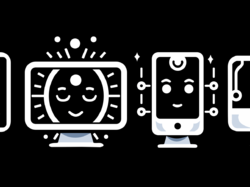Apple Used to Know Exactly What People Wanted — Then It Made a Watch
By
Josh Clark
Published Oct 5, 2018

The latest version of Apple Watch doubles down on its fitness and health-tracking sensors, but as John Herrmann writes in The New York Times, it’s not yet clear exactly what value all that data-tracking might deliver—and for whom:
For now, this impressive facility for collecting and organizing information about you is just that — it’s a great deal of data with not many places to go. This is sensitive information, of course, and Apple’s relative commitment to privacy — at least compared with advertising-centric companies like Google and Facebook — might be enough to get new users strapped in and recording.
As Apple continues its institutional struggle to conceive of what the Apple Watch is, or could be, in the imaginations of its customers, it’s worth remembering that Apple’s stated commitment to privacy is, in practice, narrow. The competitors that Cook likes to prod about their data-exploitative business models have a necessary and complicit partner in his company, having found many of their customers though Apple’s devices and software.
This is especially relevant as Apple casts about for ideas elsewhere. Apple has already met with the insurance giant Aetna about ways in which the company might use Apple Watches to encourage healthier — and cheaper — behavior in its tens of millions of customers. John Hancock, one of the largest life insurers in America, said after Apple’s latest announcement that it would offer all its customers the option of an interactive policy, in which customers would get discounts for healthy habits, as evidenced by data from wearable devices. Here we see the vague outlines of how the Apple Watch could become vital, or at least ubiquitous, as the handmaiden to another data-hungry industry.





